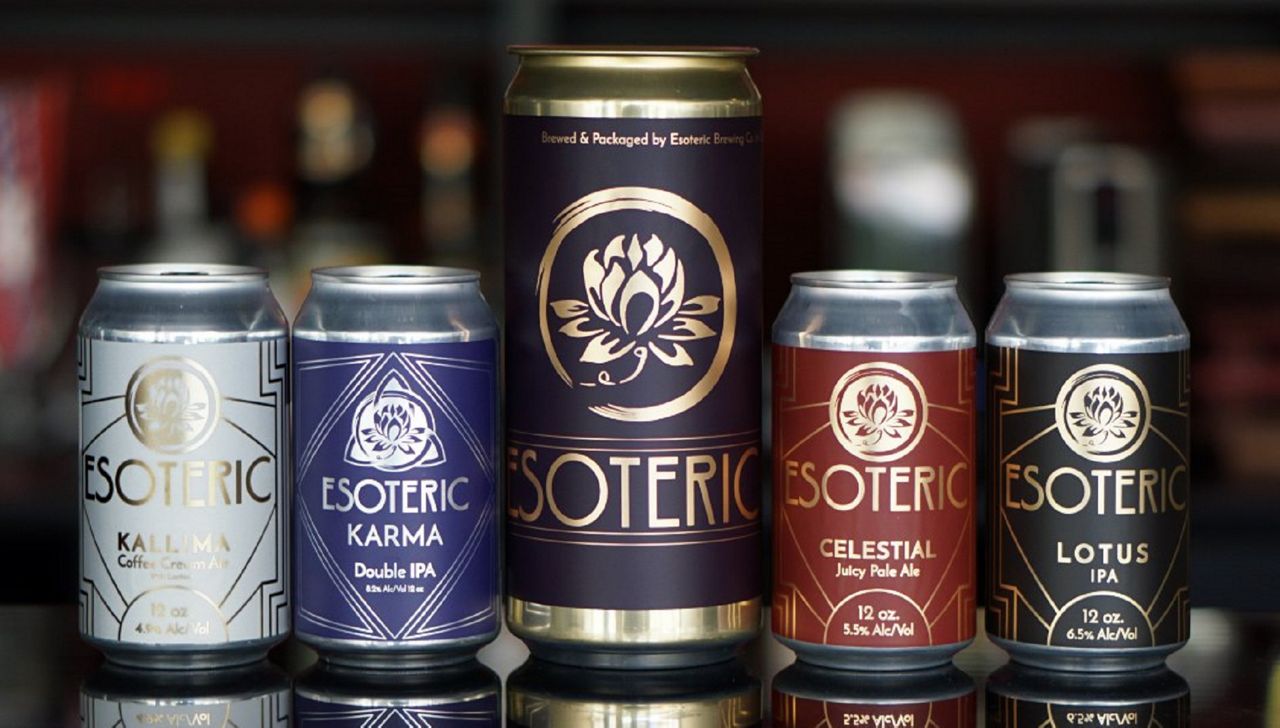CINCINNATI — When Esoteric Brewing Co. marks its one-year anniversary this weekend, it will be as much a sigh of relief as a celebration for its founders.
What You Need To Know
- Esoteric Brewing Co. opened in September 2020 in the middle of the COVID-19 pandemic
- Like many small businesses, the Walnut Hills brewery faced its fair share of challenges
- COVID-19 forced the business to move ahead with planning in several areas, including distribution
- As a thank-you to the neighborhood, Esoteric is hosting a block party on Saturday, Oct. 2
The team spent several years working to open the brewery and lounge inside the historic Paramount Building in Walnut Hills. They finally opened their doors during the first week of September 2020.
Esoteric is a minority-owned brewery — Marvin Abrinica is Filipino American and Brian Jackson, who is also head brewer, is Black. A third business partner, Patrick Klesmith, is white.
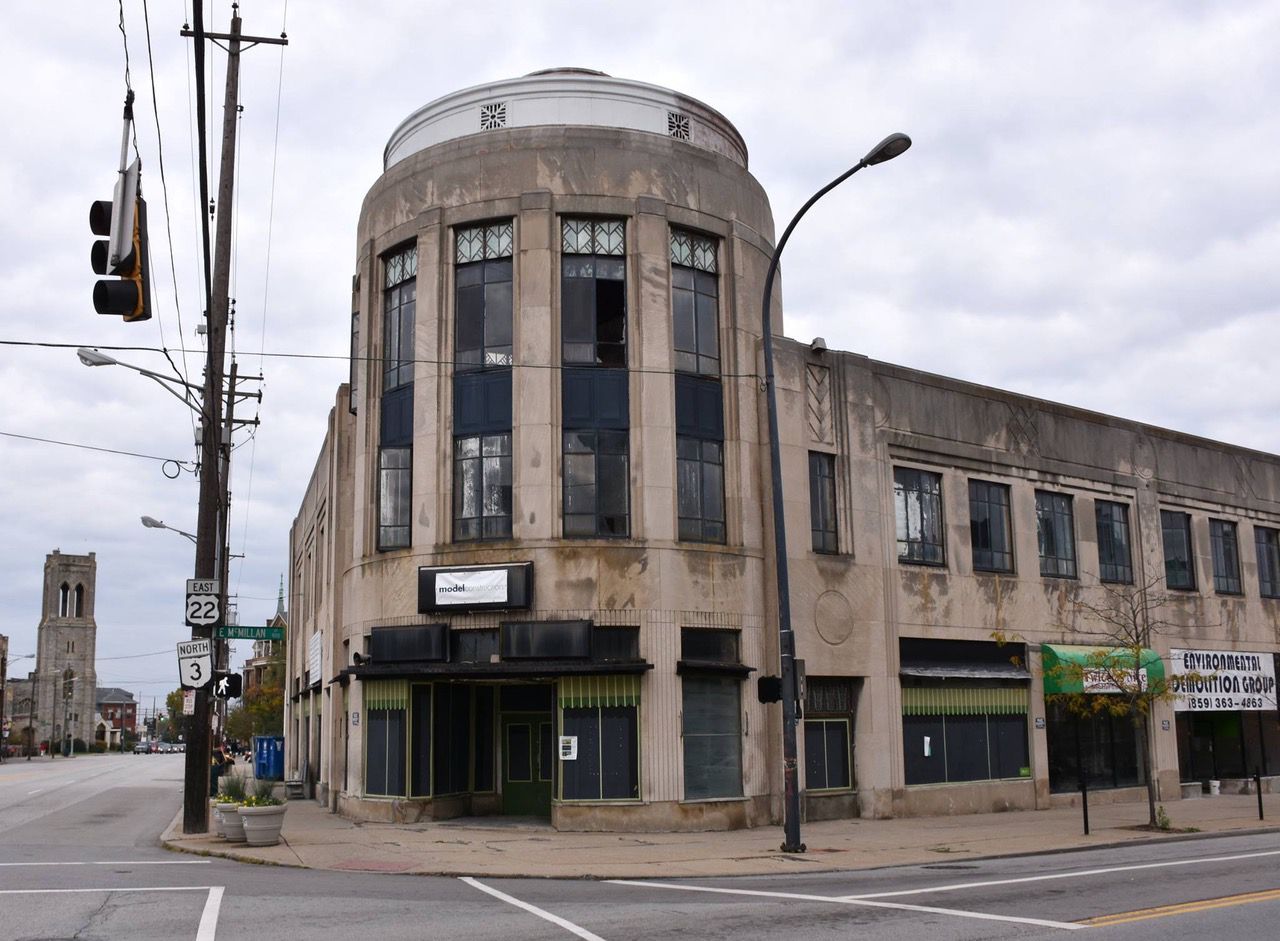
Abrinica said the diversity of the ownership team reflects the population of the Walnut Hills neighborhood they call home.
"We're hosting a block party and a celebration this weekend to say thank you to the community for supporting us and being part of this incredible, and sometimes crazy, journey over the past year," he added.
The event will include art, music, entertainment and, of course, they're tapping a new beer for the occasion. It's a Norwegian Hazy IPA called Valkyrie.
Since the day Esoteric opened its doors, the owners have received praise for the Art Deco look of their brew lounge and the number of community events they've held. That includes a Juneteenth celebration that "brought a level of diversity and inclusion to the brewing industry that is generally unseen," Jackson said.
They've also received praise for the diverse and robust mixture of beers they have on tap — ranging from industry standards on styles from Belgium, England, Germany and the United States.
There have, of course, been detractors and criticism. One of the most common comments is on the look of their lounge which Abrinica said isn't "taproom-y" enough for some.
But despite it all, the greatest challenge they've faced is trying to establish a business during COVID-19.
Small businesses and the pandemic
The reality is that it's never easy to open a small business.
About 20% of small businesses in the United States fail within the first year, according to the Small Business Administration. About two-thirds of businesses with employees survive at least two years and about half survive at least five years.
As one might expect, the numbers show businesses that make it through those first few volatile years tend to survive.
During the pandemic, each company, depending on the industry, faced its own unique experience and challenges. But despite those variabilities, Mark Kylander, with Cincinnati USA Regional Chamber, said there were some broad themes, such as businesses with weak cash positions were much more vulnerable at the outset of the pandemic because the economic system shut down so abruptly.
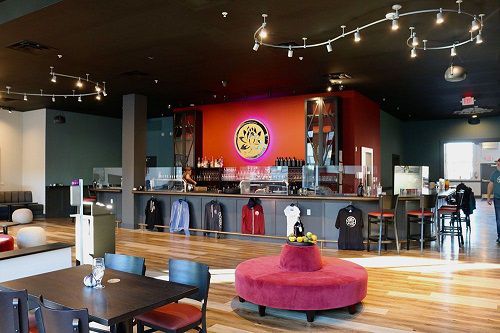
Businesses with "direct-interaction models," such as stores and eat-in restaurants, were heavily impacted for that reason, he said.
"It's simply because of the way the virus is transmitted. Any company relying on physical proximity to their customers is still navigating an ever-changing environment every time they open their doors,” said Kylander, who is the Chamber’s regional data and policy manager.
When Esoteric opened last year, it did so at about 75% of its available interior capacity. They also had to spend unexpected capital on installing things like plexiglass dividers.
They managed to supplement a little of that initially lost space with another 65 seats on an outdoor patio. But it still affects the number of guests they can serve in-house.
Abrinica said Esoteric put itself in a good position by investing in digital sales, allowing consumers to purchase their product online and pick it up curbside. They also decided to self-distribute nearly a year earlier than expected to get their product seen, and consumed, by as many people as possible.
“As a startup brewery, we’ve faced more challenges than most by opening during the pandemic. Being able to adapt was important for us to pivot,” Abrinica said. He called it “the art of the pivot.”
It was not until relief efforts like the Paycheck Protection Program (PPP) came online that many businesses could start to stabilize, according to Kylander.
Businesses in the Cincinnati area were approved for more than $5 billion in PPP funding over the duration of the program. There were also other forms of financial support from resources such as the Shuttered Venues Grant, Restaurant Revitalization Fund, state relief programs, local grants and more.
Through a financial partnership with the City of Cincinnati, the Chamber has given out $8 million in grant funding through its Taste of Cincinnati program. It gave direct funds to bars and restaurants to keep employees on payroll and encourage increased business through investments in marketing and special promotions.
"These all helped stem the tide of such dramatic losses. But even then, not all small businesses had access to this relief funding, especially minority-owned businesses who didn’t have existing relationships with Small Business Administration-approved lenders," Kylander said.
Abrinica called those programs “vital,” saying they “gave us stability in an unstable environment.”
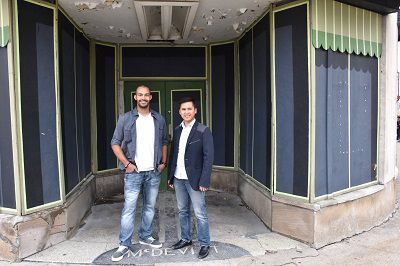
Kylander called this current period a moment of uncertainty. He cited things like virus variants and vaccination rates to supply chain issues.
Jackson said Esoteric did run into minor issues getting supplies for brewing some of their beers, mostly products coming from Europe. They still managed to produce about 650 barrels last year, which about two-thirds of the 1,000 they planned for.
One of the major challenges faced by small businesses is the unstable labor market, which is still experiencing thousands of workers sitting on the sidelines.
"(The labor situation) is putting significant stress on employers who are looking to fill open positions. Economic disparities present well before the pandemic began have only become more disparate, especially for female workers and people of color," Kylander said.
Like many businesses, Esoteric has had its fair share of staffing issues as well. While they can comfortably accommodate around 20 employees when at full capacity, they're currently hovering around nine full-time staff and a few seasonal employees. This is due in part to demand and staffing challenges, Abrinica said.
Kylander said all of these issues point to one question: how resilient will our small businesses be as they confront these challenges?
"Only time will tell, but we are hopeful small businesses will come through on the other side ready to power our regional economy into the next era of prosperity," he said.
A year ahead of schedule
The pro-opening business plan for Esoteric was to go slow that first year and focus on perfecting their taproom and beer production.
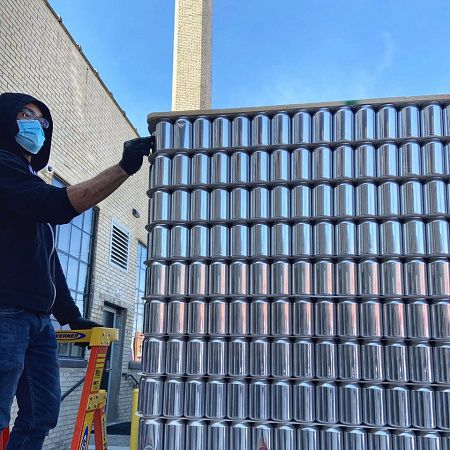
But then COVID-19 happened. Abrinica noted that they couldn't sit around and wait for the pandemic to come to an end and things to return to the normal they knew.
"To quote Mike Tyson, 'Everybody has a plan until they get punched in the mouth.' Once that happens, you just have to adapt and react to survive," he added.
Abrinica said they had to pivot on a few elements of their business to make sure it worked. That included creating distribution opportunities and selling their beer outside to restaurants and pubs, as well as retail stores and groceries.
They didn't feel ready to look into distribution partnerships just yet so they ended up buying a van, branding it with Esoteric's logo and started shipping it to all corners of Southwestern Ohio. In total, they now have more than 130 accounts.
They also sell at FC Cincinnati matches and performances of the Cincinnati Ballet. As a University of Cincinnati grad, Abrinica is most excited about seeing his beer sold at Bearcat games.
"We had to pull that forward a year ahead of schedule, because that was the only way that we could get the beer in people's hands," Abrinica said. "People were understandably hesitant to come out for parts of last year. So, if they weren't going to come out and get it, then we needed to get the beer out to them.”
A credit to the neighborhood
While they've received the standard support from government loans and grants, they've also received strong support from the residents and businesses of Walnut Hills and the surrounding Uptown area.

That was taking place even before Esoteric tapped its first keg last year.
Abrinica and Jackson worked for the three years prior to raise nearly $800,000 in capital to get the project off the ground.
They chose to crowdfund the project with Wunderfund, a company run by Abrinica, as a way to “get the community involved” and actually have residents earn equity in the building.
The Peebles Corner area that Esoteric calls home is part of the continued focus on growing the neighborhood's business district.
It already housed a few small businesses and restaurants but several more have popped up since Esoteric opened its doors.
The party on Saturday is seen as much of a thank-you to the neighborhood as anything else. They want to promote the other local businesses and residents who've supported them over the past year.
It's a chance to "pay it forward," Abrinica said.
"We've got local vendors, predominantly from Walnut Hills, because we want to celebrate the neighborhood. We want to be a part of this neighborhood's future and a catalyst for its continued growth," he said. “This is a fantastic community of people and in a lot of ways, Esoteric wouldn’t be here without them.”
Right now, Abrinica, Jackson and the team are trying to stay focused on the day-to-day and are looking forward to the celebration this Saturday. But they're excited about what the future has in store.
Find out more about Esoteric's upcoming block party on Facebook.



